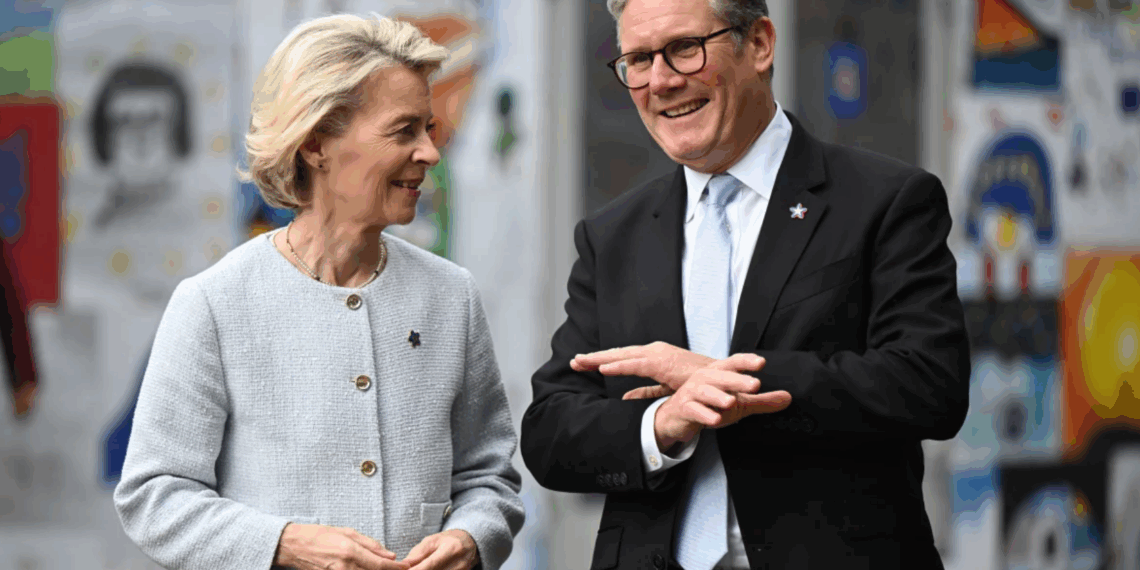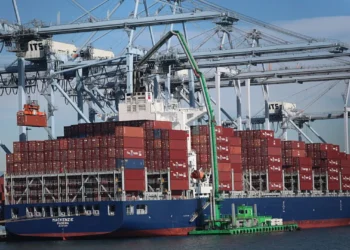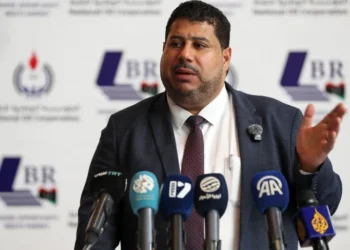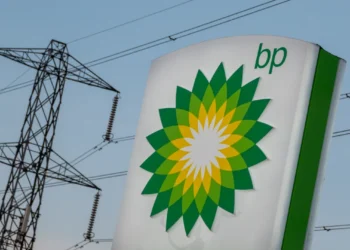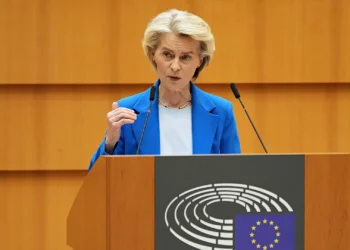LONDON (Realist English). The United Kingdom has reached a sweeping new agreement with the European Union aimed at revitalizing economic ties, supporting domestic industries, and restoring frictionless trade in key sectors — without re-entering the single market or customs union. The deal, announced today by Prime Minister Keir Starmer, follows six months of negotiations and marks the third major international agreement secured by the UK in recent weeks, after trade initiatives with the United States and India.
“This is a deal that backs British jobs, lowers household bills, and strengthens our borders,” Starmer said. “It’s time to move forward — away from stale debates, toward common-sense cooperation that delivers for working people.”
The agreement includes a new Sanitary and Phytosanitary (SPS) protocol that slashes bureaucratic barriers for food and drink imports and exports, reduces border delays, and eliminates many routine checks on animal and plant products. These changes are expected to cut costs for businesses, reduce food prices, and increase supermarket choice — key gains for both consumers and producers.
British exporters will regain access to EU markets for goods such as sausages and burgers, following significant post-Brexit losses. UK trade with the EU fell by 21% in exports and 7% in imports after Brexit. The restoration of access for these products is seen as vital for British agriculture and food industries.
The agreement also links the UK’s Emissions Trading System (ETS) with its EU counterpart, enabling greater cross-border carbon pricing coordination and shielding British firms from new EU carbon border taxes — a step expected to save UK businesses £800 million and enhance energy security.
Together, the SPS and ETS measures are projected to add £8.9 billion to the UK economy by 2040, according to government estimates.
Security, trade, and mobility: a broad reset
In a separate but related move, the UK and EU have also launched a new Security and Defence Partnership, granting the UK defence sector access to Brussels’ proposed €150 billion SAFE (Security Action for Europe) fund. The agreement will bolster British defence exports and support thousands of skilled jobs, while strengthening joint military readiness in the face of growing global threats.
On border security, the deal includes a new framework for data-sharing on facial recognition — expanding on existing cooperation on DNA, fingerprints, and vehicle records. Officials say this will accelerate cross-border criminal investigations and improve public safety.
Travelers will also see benefits: more UK citizens will be able to use automated eGates when entering EU countries, reducing long waits at border control. In addition, ‘pet passports’ will be reintroduced for cats and dogs, removing the need for repeated veterinary certificates.
On migration, both sides agreed to enhance joint efforts to tackle illegal crossings, bolster returns processes, and explore new cooperation to manage asylum cases. Starmer reiterated that reducing net migration remains a priority, even as the government negotiates new youth mobility schemes with Europe.
A proposed UK-EU youth experience scheme — modeled on agreements with Australia and New Zealand — could allow limited, time-capped opportunities for young people to work and travel across borders, pending further talks.
Fisheries, steel, and red lines preserved
The deal also protects UK fishing rights under a new 12-year agreement that maintains existing quotas and bars EU vessels from increasing their catch in British waters. To support the sector, the government announced £360 million in funding for fleet modernization, coastal community regeneration, seafood export promotion, and workforce training.
Meanwhile, a custom steel safeguard negotiated as part of the package will protect British steel exports from new EU rules and tariffs — a move expected to save UK producers £25 million per year.
“Britain is back on the world stage”
Speaking alongside lead negotiator Nick Thomas-Symonds, the Prime Minister called the agreement a “defining moment” that balances sovereignty with pragmatism.
“This is a historic day — a reset with Europe based on mutual respect and clear national interest,” Thomas-Symonds said. “It delivers for working people and places Britain where it belongs: back at the center of the world stage.”
Crucially, the government emphasized that the agreement respects all of the UK’s post-Brexit red lines:
– No return to the EU single market
– No return to the customs union
– No restoration of freedom of movement
Negotiations on implementation will continue in the coming months, with further technical arrangements and joint committees to be finalized.
This agreement represents the most significant UK-EU rapprochement since Brexit. Without compromising on sovereignty, it restores critical trade flows, rebuilds security coordination, and gives British businesses renewed access to Europe’s largest market. Starmer’s strategy is not a return to pre-2016 politics — it is a pivot toward functional bilateralism grounded in realism. What began as damage control now resembles a carefully staged re-entry into the global economy — on terms the UK can own.


